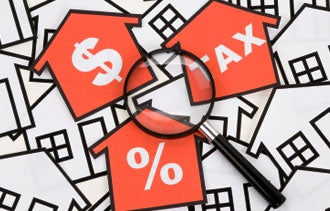The Home-Equity Credit Crunch (Opinion) How home price declines have contributed to tight credit for small businesses.
By Scott Shane •

Opinions expressed by Entrepreneur contributors are their own.
 Guest op-ed contributor Scott Shane is a professor of entrepreneurial studies at Case Western Reserve University. He writes about entrepreneurship and innovation management, among other things.
Guest op-ed contributor Scott Shane is a professor of entrepreneurial studies at Case Western Reserve University. He writes about entrepreneurship and innovation management, among other things.
The media have been all over the story of how the popping of the housing bubble in 2006 hurt American consumers. We've learned about the many people who lost their homes to foreclosure and others who can't move because they can't sell their homes. We've also heard how retirement savings plowed into real estate evaporated and discretionary spending fueled by home-equity lines of credit shrank.
The media, however, have not focused much attention on another group badly hurt by declining home prices -- small-business owners. People running their own businesses have historically relied on personal home-equity borrowing to finance their companies. As housing prices have declined, business owners have seen that credit source tighten.
Related: Should You Tap a Nest Egg to Start a Business?
In 2007, about a quarter of small-business owners either borrowed against the equity in their homes or pledged their houses as collateral to finance their business operations, according to the latest data from Barlow Research, a Minneapolis-based market research firm. Moreover, Barlow's data reveals that more small companies tapped their home equity as a source of business financing during the run up in home prices -- 28 percent in 2006, up from 18 percent in 2001.
During the housing boom, people running their own businesses clearly made greater use of home-equity loans than those working for others. Federal Reserve Bank researchers report that 20 percent of households headed by a person with his or her own business had a home-equity credit line, compared with 13 percent of all households in 2007, the latest year data are available. The median amount of outstanding home-equity debt of households headed by self-employed individuals rose 110 percent from 1998 to 2007, compared with 46 percent for households headed by people who worked for others, Federal Reserve data show. In 2007, the median amount of home-equity debt held by households headed by people in business for themselves was roughly double that for households led by people working for others.
Related: Shark Tank's Barbara Corcoran on Tapping Home Equity for Your Business
When the housing bubble popped, much small-business credit evaporated with it. Last year, Mark Schweitzer, senior vice president and research director at the Federal Reserve Bank of Cleveland, and I calculated that the shrinkage in home-equity lending since 2006, when housing prices began to decline, wiped out $8 billion in small-business borrowing. We also determined that small businesses had access to $25 billion less in credit than they would have had at that time if the home-equity lending trend had remained strong.
Unfortunately, policymakers are doing little to address this problem. Few in Washington recognize the link between depressed home prices and small-business borrowing, let alone has anyone developed policies to open up new sources of credit.
The end result is a new normal in small-business finance. Home equity will not be an easy source of credit again until the housing market shows a significant recovery. For the foreseeable future, then, small businesses will have to seek other financing sources. For good credit risks, that means borrowing against the business's cash flow. For others, unfortunately, it will likely mean scaling back operations to minimize borrowing.










